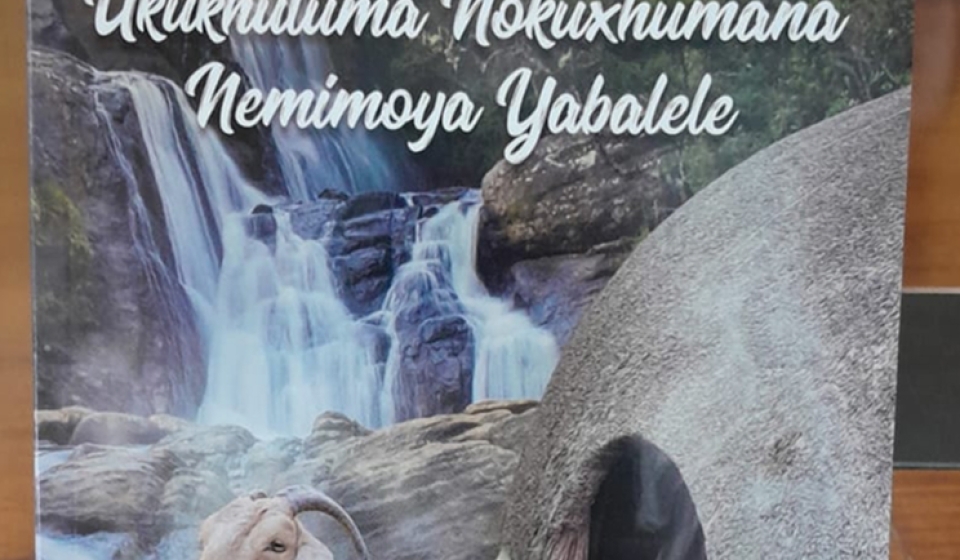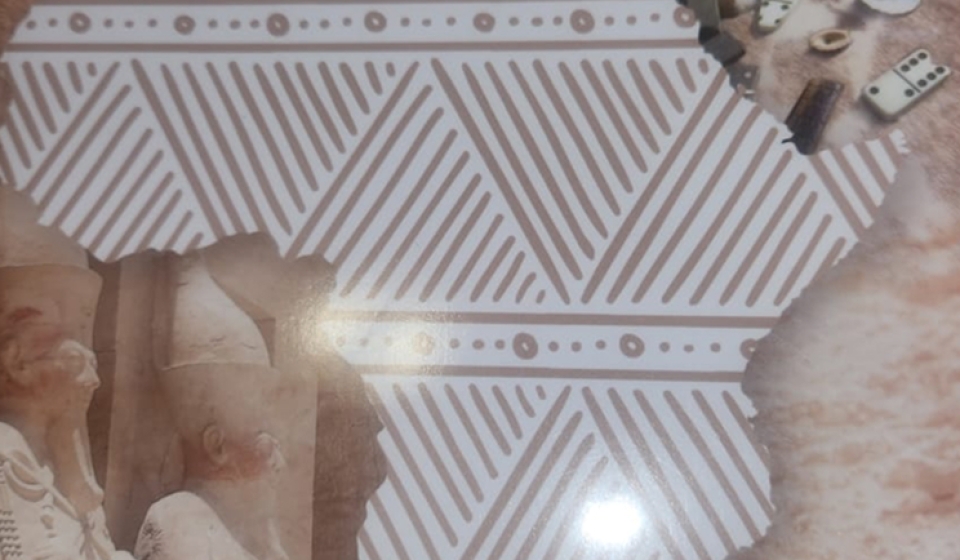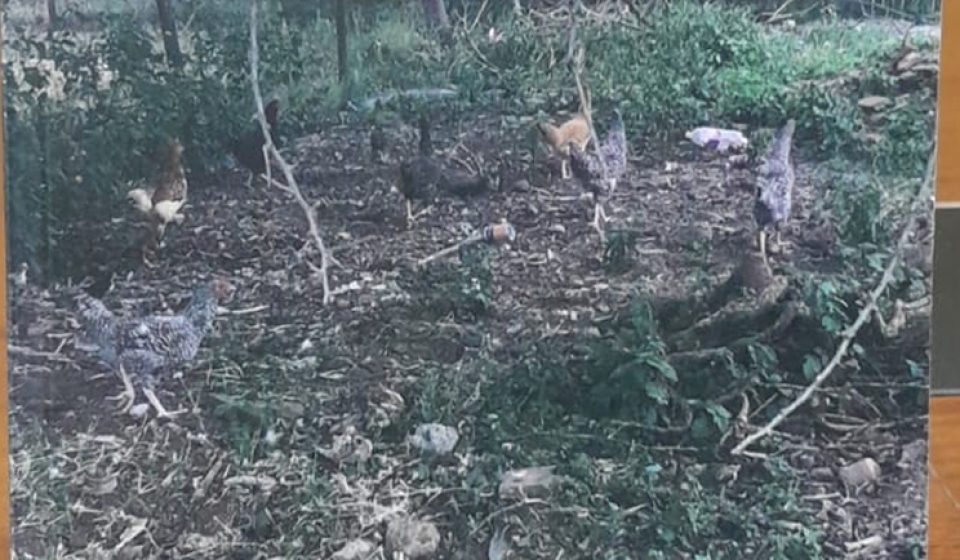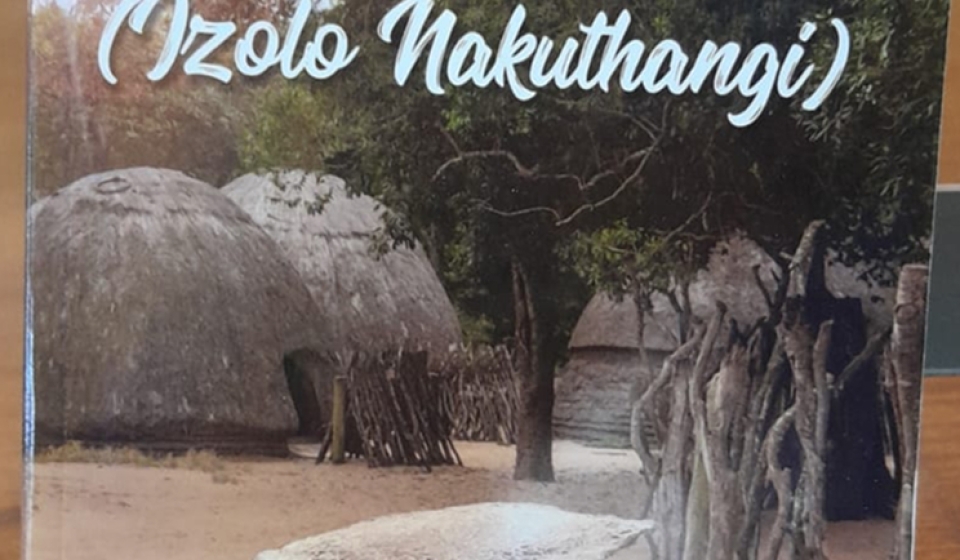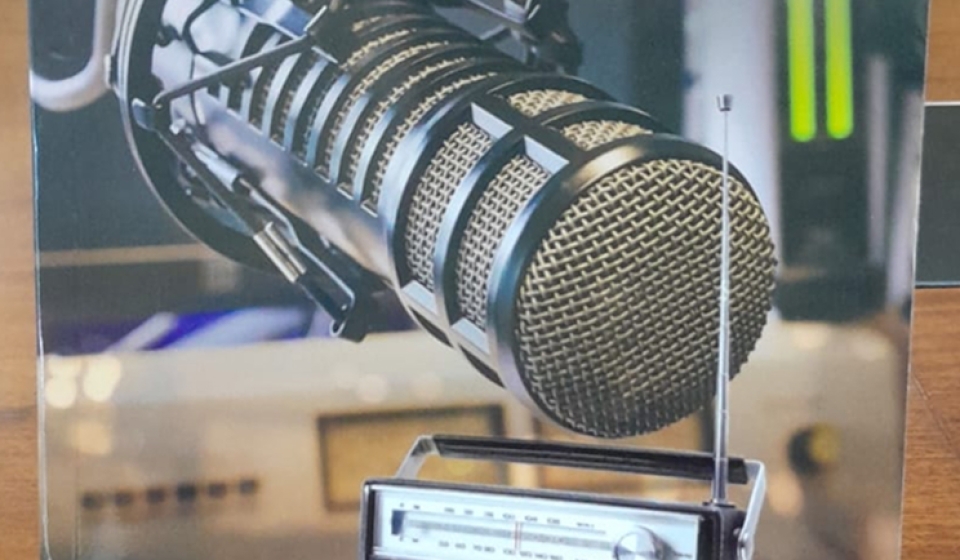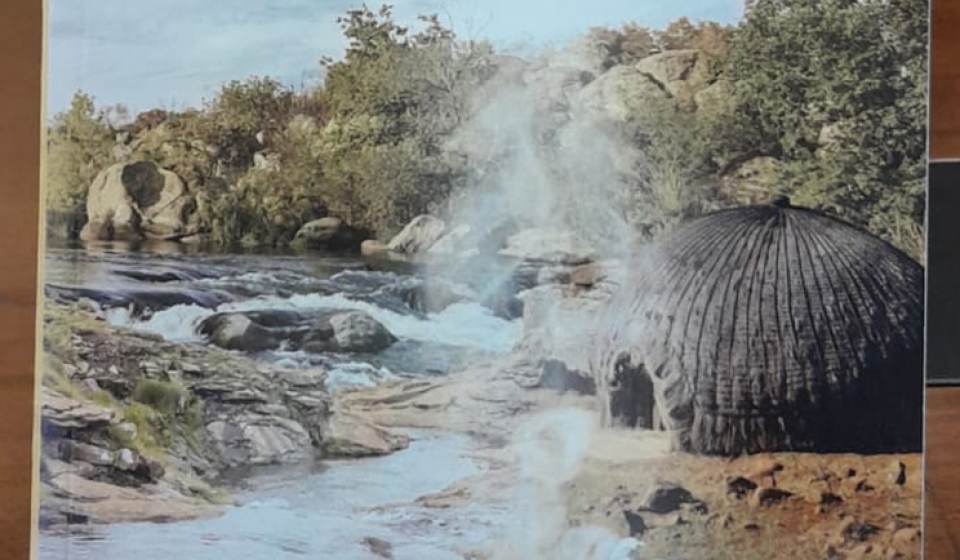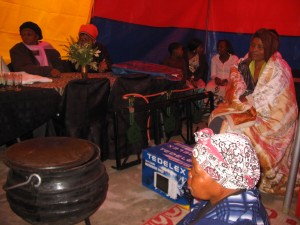UKUTHWASA-ITS MEANING AND PROCESS
African ‘Ukuthwasa’ and healing (ukwelapha) has been misconstrued and misunderstood for many years not only from the Western researchers but also from the people of Africa. Reason being that it has never been something taken as a special gift to those who happen to be the victims of it. Ukuthwasa and to be possessed by idlozi has been taken as something evil by its own people and even those who happened to be possessed have tried in many ways to escape from it by denying it.
Ukuthwasa
Ukuthwasa is not something new, it has been there even during the times of our forefathers, the only difference now being that in the olden days or primitive times, it was more respected and was also properly done than it is happening today. Ukuthwasa is an acceptance of an Idlozi, which once lived before and because now that idlozi wants to come back as a ‘spirit’, and continue performing its duties, it gets into somebody with the body in the real world and start wanting to work through that body. Idlozi is an ithongo which possesses someone, and because it has now acted in this manner it gets called idlozi. This idlozi is governed by amathongo who are the custodians of ‘the umsamo or Isigodlo’ and also the owners of this ‘ubunyanga’ which is ‘impande’– the art of healing.
There are many signs which are indications of having the so-called ‘abantu abadala’ – the ancestors of Healing. Some people are born with, or in a veil of some sort which is an indication that this child has old people within her/him. Such a veil might sometimes indicate that such a child needs to be given a name of one of the ancestors, which might not be necessarily be that he/she must go and perform ukuthwasa. Most of the African Healers have misunderstood this. Besides this a person when at a particular age (which is determined by the ancestors themselves), will start seeing some images in her sleeping, sometimes experiences some dreams, which might be like: snakes, big river with clear water, sometimes will see people wearing an African attire, especially that of the Healers and so on. In some cases they will start talking to the individual either when awake or direct him/her in many things to be done.
Other people get sick and become thin others too fat, which is really abnormal, and others suffers from certain deceases. There will be many misfortunes at home if the person is refusing and not responding to the calling – to an extent that they can even bring bad luck to the whole family. When such symptoms are seen, there is nothing the family can do until the idlozi itself shows you where to go and be initiated.
The type of spirits.-imimoya yedlozi
There are two types of ubunyanga/imimoya mostly found in the Southern part of Africa. It is IsiNguni and Isindawe. IsiNguni is from the whole of Kwa-Zulu right up to Manguzi and Mhlab’ uyalingana. IsiNguni has two well known ‘spirits-imimoya’ – Umndiki and Umndawe, whereas IsiNdawe, which is from the North, West and Central parts of Africa, is Umnono. UMnono is not that well and much known in the Kwa-Zulu area hence it has become a huge problem for the African Healers in the area. The reason is that it has its own special ‘herbs’-impande, which is only obtainable either from Mozambique, Zimbabwe, Zambia and other countries in Africa. Isindawe came to Kwa-Zulu through the Shangaan people during the days of King Shaka. They are the only people who clearly know and understand it.
Umnono therefore cannot be healed with the IsiNguni ‘impande’ and vise-a versa. UMnono is the spirits of the ‘abalozi’ (see below), hence it is the only type of healing which is rarely found and known in Africa. The UMnono takes much longer time than the other IsiNguni spirits to mature. It can take between 10 – 15 years because it does everything on its own and one must be a good reader of the dreams and images as they operate through you. Also if the person is possessed by Umnono and is not accepting the calling as quickly as they want, they can come with very hush sentences which can easily leads to death.
Indiki
Indiki is another confusing term. It is completely different from Umndiki which is an ancestral spirit. Indiki is a ‘sign’ which one may have as an ‘umuntu omdala’ – an ancestor with you in a particular form. Indiki can be that you have to inherit the name of one of your ancestor’s name either an Old woman (isalukazi) or an old man (ikhehla), or it can be that somebody in the family who died long time ago is within you, and he/she needs to be cleansed in order to be free. Some people take indiki as a kind of sickness whereas it’s not. Once consulted an African Healer (uhlanya), and identify what it is and what needs to be done, sickness can come to stop immediately.
The most common indiki is where a person is supposed to inherit someone’s name who was living in the family, an ancestor member (omunye wamathongo). Many African Healers when they see this they start initiating people whereas he/she is not suppose to be initiated and such person will never perform his functions as an Uhlanya.
Ukuthwasa-The Process
The Idlozi which has possessed you is called ‘isithunywa’. The Isithunywa is also governed by the owners of ‘ubunyanga’ and ‘isigodlo’ or ‘umsamo’. Isithunywa comes in many forms. There is isithunywa that operates through herbs –impande, the other operates through water, the other through, a prayer all depending on what the gift is. There are those who even mix both the prayer and the herbs-impande. There are people who heal through praying, others through water, others through herbs; it all depends on the type of isithunya that has possessed you. That is why it is not your choice where you can go and be initiated, but it’s them (amadlozi) who show you the person who will initiate you and also the place where you will be initiated. If it’s going to be in water they will show you and the whole process.
Ukuthwasa process has no specific time frame, as it is up to the isithunywa itself how fast she/he matures and when he/she has received his/her impande he/she requires in order to be matured. This is an ongoing process because even if when you have graduated (ukuphothula), the ancestors continue initiating you, which we call ‘ukukhula komsamo. ’ There are people who gets possessed by more than one isithunywa. You find that it’s more than one ancestor – idlozi, and these amadlozi they operate at different levels, and gets initiated at different times. Once the whole process is completed they will now come or visit you and show you all the impande which you will be using during the healing process. These herbs –impande is a secret only for your healing practices.
During this process the most important and critical thing is the amaphupho-dreams, which they use most of the time communicating with you. It is these dreams-amaphupho which your initiator-ugobela must listen to because they are telling you and him the direction to be taken. It is painful that most of the time the initiator of nowadays do not listen to their –amathwasa’s– dreams-amaphupho, and this hampered the process of ithwasa.
The Healing Technologies
Izinhlanya use different types of Indigenous Healing Technologies. There are those who use water, the candles, others bones-amathambo or izinhlolo, and others use amagona-small calabashes (umndawe healers) whilst others just rely on the ancestors who tells them everything without being assisted by any technology. This is very much remarkable to the abalozi who mostly rely on the whistle which is head at the ‘umsamo’ of the hut (rondavel). It is always the secret of the ancestors (idlozi) which indigenous technologies one will make use of during the healing and consultation process.
Izinyanga/Inyanga
A lot of confusion has been happening in our Traditional Healing especially in the usage of certain terminologies. The most wrongly used word is that of inyanga, which has now been used to refer to all healing people. Similarly with the word Isangoma, where it is used to refer to all people who are practicing African Healing and Spiritualism. I feel it is our responsibility to correct this. Inyanga or izinyanga (pl) are the owners of impande. It is those people who used to practice healing and died, and now come back and give those who are practicing all the knowledge and secrets about impande. They are the overseer’s of impande and inform the uhlanya how it is used and should be used. Izinyanga are the connectors between healing and impande spirits, and also between the living healing practitioners and the spiritual-isithunywa.
Isigodlo-the Hut where the healer practices
All African Healers have a hut called isigodlo. This hut is where the amadlozi and izithunywa resides and also a consultation room. Before the ithwasa finishes his/her ukuthwasa the idlozi visits him/her and show the ithwasa the type of isigodlo they would like to reside and work in. Others are the round huts (rondavel) others uguqa, both thatched with grass. This isigodlo is very critical in the life and all practices of the uhlanya. This hut has some special rules which must be obeyed now and again.
Ukuphothula and ukubonga izikhwama
Ukuphothula is when the ithwasa has to finally go back home. This does not happen through the instruction on the initiator but, the idlozi decides on its own. A goat/sheep (in some other cases) is slaughtered at the initiators place and a cow and a goat is prepared for slaughtering at the ithwasa’s place. This is an African Ukuthwasa Graduation.
It is a complete graduation but which does not say that the ukuthwasa is over. The idlozi will continue with its own secretive agenda only understood by them. There will be drum beats which will be played at the ithwasa’s place and dancing by other izinhlanya.
Later the ithwasa will have to slaughter another cow which will be shown by the idlozi to the ithwasa through the dream, its colour, sex and age (whether young or old). Normally this cow is white, and it is for thanking the gift which has been given to an individual. This is called ukubonga izikhwama. Ukubonga izikhwama is an indication that this is a highest gift from the ancestors which is only given to a chosen few.
After this the person can now start practicing either as Isangoma, abalozi , umthandazi or any other form of healing.
Ukuphathiswa
In African healing nothing an ithwasa will do unless he or she has been ‘given to do that’ through a particular process. In the IsiZulu this is called ukuphathiswa. Before he/she gets graduated, he/she must go through the process of ukuphathiswa. It is also only the ancestors who comes through a dream either to your ugobela (initiator) or yourself and informs you that such process must be done and how.
The muthi which one will use during all his healing processes must be properly given to the ithwasa through a particular process. We are saying this because most people who happen to be initiated they do not go through this process and they then happen to be failures in their professions. This leads us to the ukuthwasisa as a process. No one can be an initiator unless he/she has been through this process of ukuphathiswa. The fact that you have graduated and can heal people does not mean that you can automatically be an Initiator (ugobela wokuthwasisa.)
There are people who practice the process of ukuthwasisa but they have never been through the process of ukuphathiswa which at the end of the day produces nothing other than non-performing healers.
Types of African Healers
African Healers in nowadays are called in many ways. The most common name is Traditional Healers or Isangoma. This has been distorted by white researchers in all their writings when referring to these people they use the term Traditional Healers or Isangoma, and we also happen to use them in such a wrong manner.
It is true that the term isangoma is not an appropriate term because it’s not everybody who has been in initiated is an isangoma. Isangoma is one category under many forms of healing. The term for people who has been possessed by the idlozi is uhlanya. They are called izinhlanya because they see things we cannot see, they can talk to the people we cannot see, they can tell us what we may think it’s full of madness. Therefore uhlanya is a generic term like Doctor in the Medical profession. What defines a person’s specialty is the manner he was possessed by the spirits. Those who were possessed through dancing and music (ukugida nengoma) are called Isangoma. Those who were possessed through the process of the whistles (imilozi) are called abalozi.
In African Healing we therefore have the following types of izinhlanya:
(i) Isangoma – possessed and trained through dancing and music (ingoma)
(ii) Abalozi – Possessed and trained through the whistles. This type of healing is very rare and it takes a longer time than the ordinary training. Normally it is the ancestors who does the whole training themselves through dreams, and in dreams.
(iii) Umthandazi – They normally use a prayer and (amanzi). Some of them use candles when they consult.
(iv) Umhlahli – This is a person who can tell you the name of the person who actually bewitched you. They are very few these days.
(v) Isanusi – This is the highest hierarchy in African Healing. Isanusi is a seer, foreteller, and a prophet who can tell people what will happen and when. This is the development of the abalozi.
Conclusion
Ukuthwasa and to be possessed by an idlozi is a very intricate process which needs to be fully understood before it is concluded that one needs to be initiated. There are symptoms which might come as if one needs to go and perform the ukuthwasa whereas it’s not that but it’s just indiki, here one must just take some concoction of muthi of some kind and such idlozi gets healed. So people must be careful about this. Many people have suffered from such bad conclusion.

